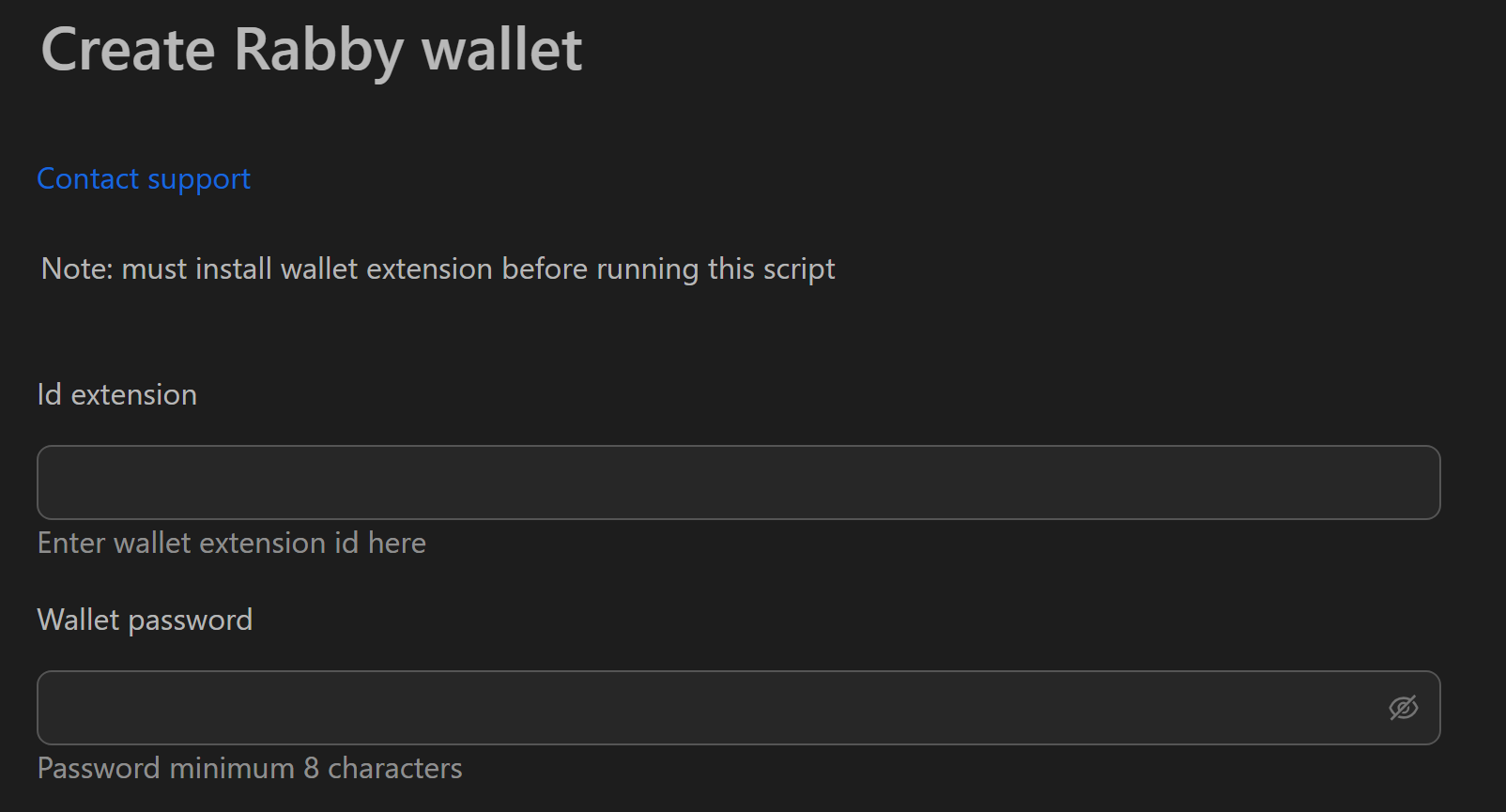Tool for Bulk EVM Wallet Creation via Rabby Wallet: The Optimal Solution for Airdrop Farming and DeFi
In the ever-expanding universe of Decentralized Finance (DeFi) and Web3, the competitive edge is often determined by speed, scale, and the ability to efficiently manage digital assets. For those deeply involved in the market—from professional airdrop hunters and seasoned DeFi investors to project developers—owning and operating a large number of cryptocurrency wallets is no longer an option, but a strategic requirement. However, the process of manually initializing and managing hundreds, or even thousands, of wallets is an extremely time-consuming, error-prone task fraught with security risks.
Copying and storing each seed phrase or private key separately not only slows down progress but also creates fatal security vulnerabilities. A minor mistake can lead to a total loss of assets. Recognizing this significant barrier, the Tool for Bulk EVM Wallet Creation via Rabby Wallet was developed. This is not merely a utility, but a powerful infrastructure solution designed to fully automate the wallet creation process, helping users deploy large-scale strategies quickly, securely, and systematically.

In-depth Analysis of the Tool's Core Features
The tool's simple interface conceals a powerful and complex back-end process, designed to maximize efficiency and security.
1. High-Speed Bulk Wallet Initialization
The first and most apparent strength is speed. Instead of going through a 5-10 step process to create a single wallet manually, users only need to enter two parameters: the extension id and the wallet password. For example, creating 1000 wallets across 10 threads is many times faster than creating them sequentially one by one. This feature turns a task that could take days of work into one that can be completed in just a few minutes.
2. Comprehensive and Transparent Generation of Security Keys
This is the most critical feature in terms of security and management. After creation, the tool displays and allows the export of all vital information for a cryptocurrency wallet:
- Seed Phrase (Recovery Phrase): Typically 12 or 24 English words, this is the wallet's
master key. From the seed phrase, a user can restore all of the wallet's private keys and addresses on any device. This is the most sensitive information and must be protected absolutely. - Address (Wallet Address): This is the public address, similar to a bank account number, used for receiving assets. It is generated from the private key but cannot be reverse-engineered to find the private key.
The tool's transparent provision of both these components gives users full control and flexibility in managing and backing up their assets.
3. Scientific Data Management and Storage
After the wallet creation process is complete, users can use the Save File feature to export all data to a CSV file. The CSV (Comma-Separated Values) format is a common standard that can be easily opened and processed by spreadsheet applications like Microsoft Excel or Google Sheets. This provides significant benefits:
- Organization: Users can create a master Google Sheet to manage thousands of wallets, adding notes on their purpose, linked social media accounts, and the operational status of each wallet.
- Integration: The exported
CSVfile, once converted to.xlsx, can be used as input data for other automation tools, such as social media account nurturing tools or scripts for interacting with dApps.
Strategic Applications in Practice
This tool is not just a utility but an infrastructure component that enables the deployment of complex strategies.
1. Building and Operating Airdrop Farms
This is the most common application. A professional airdrop hunter's complete workflow would be as follows:
- (Wallet Creation): Use the tool to generate 500 EVM wallets and export them to a CSV file.
- (Environment Setup): Use an anti-detect browser and assign each wallet its own browser profile. Each profile is then assigned a unique proxy and separate social media accounts (Twitter, Discord).
- (Interaction): Use automation scripts to log into each wallet and interact with the target protocol (swap, stake, lend, borrow, etc.) randomly and consistently over several weeks or months.
- (Claiming): When the project announces the airdrop, use a script to check for and claim rewards from all 500 wallets.
2. Testing and Developing Decentralized Applications
For developers and QA teams, testing a dApp under real-world conditions is critically important. This tool allows them to instantly create hundreds or thousands of test wallets to:
- Stress-test: Send thousands of simultaneous transactions to test the load capacity of the smart contracts and back-end infrastructure.
- Simulate Users: Simulate a token or NFT launch event with thousands of participants to ensure the process runs smoothly.
- Test Logic: Distribute test tokens to the wallets and check complex scenarios related to ownership and interaction.
3. Managing Funds and Decentralized Assets
For investment groups, small funds, or DAOs (Decentralized Autonomous Organizations), this tool provides a quick way to create an organized wallet structure. For example, a fund could create 20 wallets, assign them to 5 analysts (4 wallets each) for them to manage different experimental investment portfolios. The CSV export makes auditing and tracking much easier.
